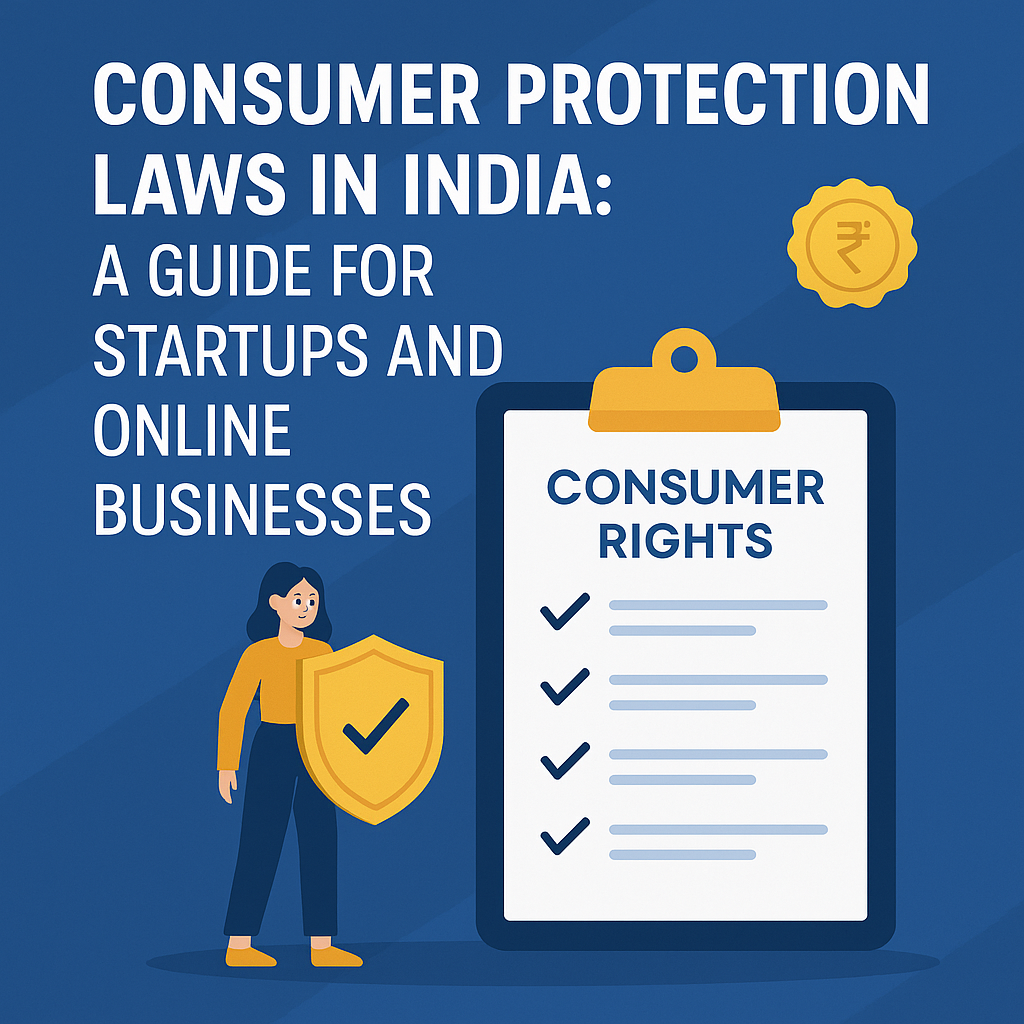In the digital era, startups—especially those in e-commerce, D2C, or SaaS—must pay close attention to consumer protection laws in India. These regulations are not just checkboxes for compliance—they are vital to winning trust, avoiding penalties, and growing responsibly. Whether you’re selling a physical product or a digital service, understanding the rights of consumers, setting clear return policies, and handling complaints fairly are legal musts. This blog explores the key aspects of startup legal compliance related to consumer protection.
Why Consumer Protection Matters for Startups
For today’s digitally savvy customer, trust is everything. Failing to meet expectations in product quality, returns, or privacy can quickly lead to:
-
Legal complaints
-
Penalties under the Consumer Protection Act, 2019
-
Reputation damage via social media
-
Loss of business partnerships
Whether you run an online marketplace or a product-based startup, strong consumer policies are a strategic asset.
Core Consumer Rights Under Indian Law
The Consumer Protection Act, 2019 ensures:
-
Right to be informed – Transparent pricing, ingredients, terms
-
Right to choose – No forced selling or misleading packaging
-
Right to redressal – Mechanisms to lodge and resolve complaints
-
Right to safety – Products must be safe for consumption
-
Right to be heard – Feedback and grievance channels
Key Compliance Areas for Startups
1. Return and Refund Policy
Clearly state:
-
Timeframe for returns
-
Non-returnable items
-
Refund mode and time
-
Shipping cost treatment
→ Avoiding ambiguity reduces disputes.
2. E-commerce Consumer Protection Rules (2020)
If you’re selling online, follow these rules:
-
Transparent seller info
-
No false reviews
-
Fair refund terms
-
Grievance officer appointment
-
Compliance with labeling norms
3. Product Liability Law
Startups must ensure that:
-
Goods meet safety standards
-
Faulty products can result in compensation
-
Warnings and disclaimers are clear
Especially critical for tech products, health goods, and food startups.
4. Customer Grievance Redressal
You must:
-
Provide a dedicated contact
-
Acknowledge complaints within 48 hours
-
Resolve within 30 days
-
Maintain complaint records for review
Need help setting this up? Read: Regulatory Compliance and Annual Filings
5. Unfair Trade Practices
Avoid:
-
Fake discounts
-
Bait-and-switch advertising
-
Hidden charges
-
Spammy terms & conditions
-
Using “no refund” clauses unlawfully
These can attract regulatory action and customer backlash.
Checklist for Compliance
✅ Display all terms & conditions on your website
✅ Mention MRP, expiry, brand details for physical goods
✅ Use consent-based opt-ins (especially for marketing)
✅ Appoint a Grievance Officer (mandatory for platforms)
✅ Implement secure data handling per IT Rules
Also explore: Cybersecurity Challenges and Solutions for Startups
Penalties for Non-Compliance
| Offense | Penalty |
|---|---|
| Misleading Ads | ₹10 lakh – ₹50 lakh + imprisonment |
| Defective Products | Refund + damages |
| Lack of Grievance Redressal | Fines up to ₹1 lakh |
| False Claims | Upto 2 years’ imprisonment |
Tools That Can Help
-
LegalDesk, RocketLawyer – Policy generators
-
Zoho Desk, Freshdesk – Grievance tracking
-
Shopify, WooCommerce – Add return rules easily

